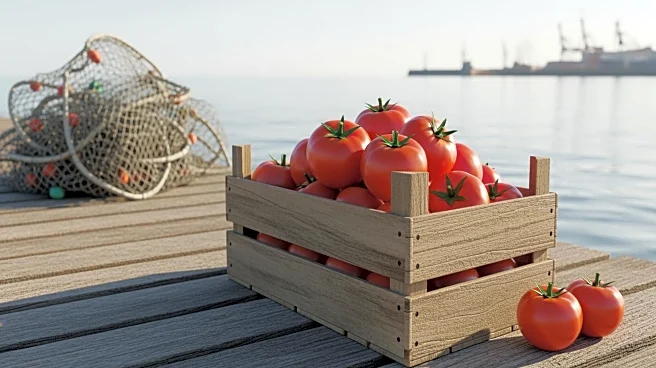What's Happening?
Australia's Anti-Dumping Commission has released preliminary findings indicating that three Italian manufacturers, De Clemente, IMCA, and Mutti, have been exporting dumped tomato products to Australia. The investigation was initiated following a complaint
by SPC Global Holdings, an Australian food group, regarding the dumping and subsidization of imported prepared and preserved tomatoes. The Commission's report, spanning 172 pages, suggests that these companies exported goods between October 2023 and September 2024, receiving countervailable subsidies. However, the level of subsidization was deemed negligible, and the Commission proposed ending this part of the investigation. La Doria, another Italian exporter, was found not to have dumped products, and the investigation into this company may be concluded. The Commission noted that while the imports affected SPC's economic condition, they did not cause material injury to the Australian industry.
Why It's Important?
The findings of the Anti-Dumping Commission are significant as they highlight the challenges faced by local industries due to international trade practices. Dumping can lead to unfair competition, potentially harming domestic producers who cannot compete with lower-priced imports. For SPC Global Holdings and other Australian manufacturers, this investigation underscores the need for vigilance and regulatory measures to ensure fair competition. The outcome of this investigation could influence future trade policies and the enforcement of anti-dumping regulations, impacting both Australian and international stakeholders. It also raises questions about the effectiveness of subsidies and their role in global trade dynamics.
What's Next?
Interested parties have 20 days from the report's publication to submit their responses. SPC Global Holdings has expressed disappointment with the initial findings but remains committed to engaging with the Commission throughout the investigation's remaining stages. The Commission's final decision could lead to changes in import tariffs or other regulatory measures to protect the local industry. The involved Italian companies may also need to adjust their export strategies depending on the investigation's outcome. This situation may prompt further scrutiny of international trade practices and the role of subsidies in global markets.
Beyond the Headlines
The investigation into tomato dumping in Australia highlights broader issues of international trade fairness and the impact of subsidies. It raises ethical questions about the balance between competitive pricing and the sustainability of local industries. The case also illustrates the complexities of global supply chains and the need for transparent regulatory frameworks to address potential market distortions. As countries navigate trade relationships, the importance of maintaining equitable practices becomes increasingly crucial to ensure long-term economic stability and growth.















